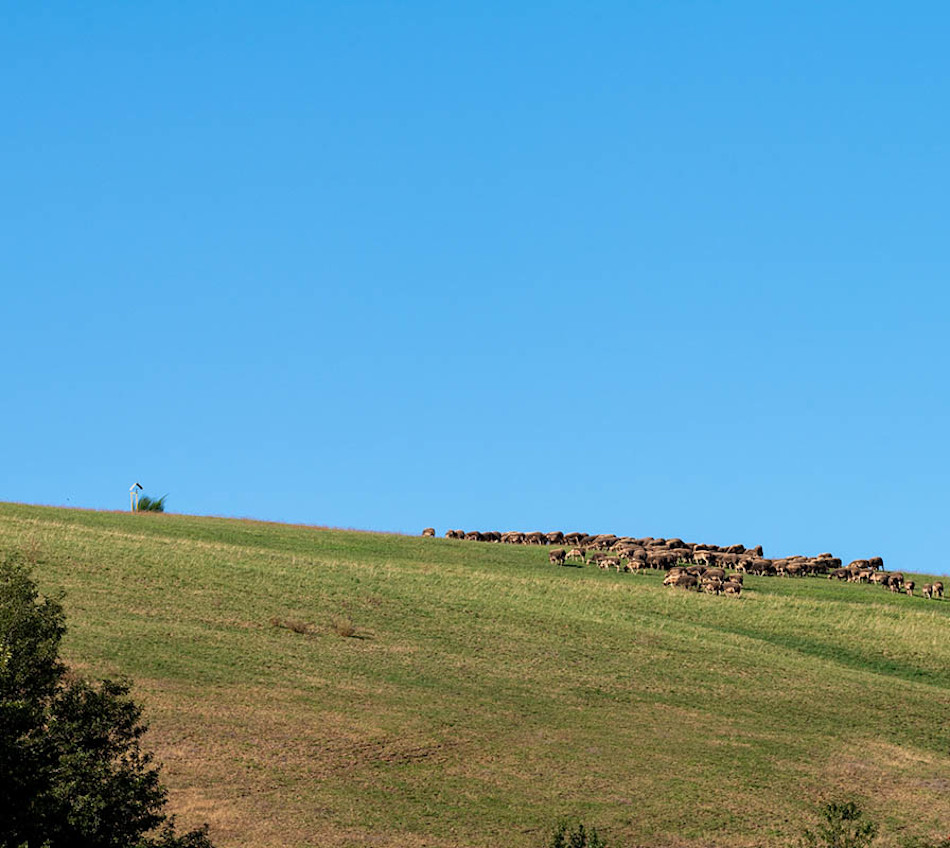Transform your waste into energy
Your waste is valuable! Processed appropriately, it can be a precious source of heat, electricity, or even renewable fuel. Find out how our technological solutions can help you turn your methanisation project into a reality.

Methanisation: recycling waste to benefit the territories
Methanisation, based on the natural fermentation of organic waste, can be used to produce biogas, a renewable energy source with high added value. Biogas can be used just as it is, in certain cases, or it can be purified and then injected into gas grids. We then talk of biomethane, which can be put to the same uses as natural gas, and which can also be used as a fuel in NGV/bioNGV vehicles. The methanisation process also produces a digestate which can be used to replace synthetic agricultural fertilisers.
What waste can you recycle?
There are many types of waste, also referred to as “inputs”, that can be recycled by methanisation:
Livestock effluents or animal manure: pig and cattle slurry and manure, poultry manure, etc.
Crop residues: maize, cereals etc.
Intermediate energy crops: plants sown between two main crops to help regenerate the soil.
Local authority green waste: grass clippings, roadside verge cuttings etc.
Food waste from restaurants.
Agribusiness waste: effluents rich in sugars or alcohol, fruit and vegetable residues etc.
What are the methanisation processes?
Methanisation units can use a dry system or a wet system. Which process you choose depends on the nature of the inputs and, particularly, their dry matter content. The wet system is used therefore for organic matter with a dry matter content of less than 15%; the dry system is used where the dry matter content is between 15% and 40%.
Build your waste recycling project
The recycling of organic waste by methanisation is an energy recovery choice that suits the needs of local authorities, farmers, agribusiness and supermarkets.
At Teréga Solutions we place the accent on autonomous territorial agricultural methanisation, made up of small and medium sized units. With our turnkey project development solution, you will find the solution best suited to your project and make it a reality! As a way of making methanisation more accessible we have also set up a methanisation unit rental offer.
The solutions we offer
Recycle your waste and keep ahead of anti-waste laws
The processing of biowaste is a major regulatory challenge for local authorities, industry and farming. The French law against waste for a circular economy (AGEC), which came into force on 1st January 2022, sets out within a short period of time to strengthen the obligation to recycle this organic waste. The Environmental Code sought to reduce the amount of domestic waste or similar produced per inhabitant by 10% between 2010 and 2020. The target has now been raised to a 15% cut by 2030, and the AGEC law adds a further objective: “to ensure energy recovery from at least 70% of waste whose materials cannot be recovered by 2025”.
In other words: making plans today to transform your waste into energy puts you well ahead of the regulatory obligations you will face tomorrow!
Waste recycling: the engine of the circular economy
Waste processing by methanisation is a powerful engine driving the circular economy. This solution can be used to recycle the co-products of industrial and agricultural activities in the territories, to produce renewable energy locally, and to create local jobs. It also helps make agriculture more sustainable, by generating stable additional income for farmers, and providing an alternative to synthetic fertilisers: digestate, the co-product of methanisation, is in fact a natural fertiliser. The methanisation of your organic waste is a win-win solution for the environment and for all business segments.
Contributing to national and European energy decarbonisation targets
When left to decompose without any processing, biowaste becomes a significant source of emissions of methane, a greenhouse gas which is even more powerful than CO2. Energy recovery from waste through methanisation therefore allows you both to limit those emissions of greenhouse gas into the atmosphere and to produce renewable and decarbonised energy. The biogas and biomethane that are produced can actually be transformed into heat, electricity or fuel (bioNGV), thus replacing fossil fuels such as oil, coal and natural gas.
Let's talk!
Do you want to commit to a methanisation project? Don’t hesitate to get in touch with us to define your requirements. Our experts will support you throughout your whole project.
Thomas Lubet
Business developer
thomas.lubet@terega.fr
+33 (0)6 72 34 75 25


